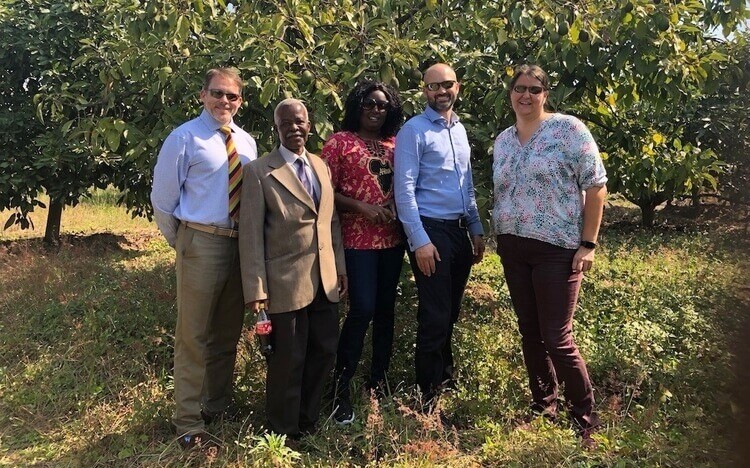But are there any features of an MBA degree that are essential for everybody, no matter their intentions after graduation?
At Cranfield School of Management, the answer is ‘yes’.
On Cranfield’s full-time MBA program, students are obliged to take part in an International Business Assignment, or IBA, as part of the curriculum—a week-long adventure in a foreign environment where they get to experience business first-hand.
Why?
Employers value international awareness
The most pertinent reason why international experience is a must-have for ambitious MBAs is the fact that employers across industries all covet it.
When asked by QS in their 2018 global survey what skills they valued in their MBA hires, employers rated international awareness highly; more highly, in fact, than marketing skills or academic achievement.
Clearly, in a globalized business environment, understanding how business works around the world is crucial for MBA programs to deliver.
This is exactly what the International Business Assignments at Cranfield School of Management aim to do, while allowing students to customize the kind of international experience they want to gain.
“The purpose of it is for students to develop an understanding of doing business in a different context, and to do that by really immersing themselves in it for a week,” explains Emma Parry, a professor of Human Resource management and the IBA coordinator (pictured).
For students who want a broad introduction to current business challenges in a country, there is the IBA visit, during which students travel to a foreign country and experience a series of lectures and presentations from local companies.
Past destinations for the IBA visits include China and Japan, while the first IBA to Uruguay took place this year.
“Students can really offer something to the businesses they work with”
For those looking for a more practical approach, there are field trips, which take MBAs to emerging economies like Sri Lanka and Zambia and see students complete consultancy projects for small to medium-sized enterprises (SMEs).
“The work can be anything from developing social media marketing to putting together business cases for new activity—projects across the whole range of MBA skills,” Emma continues.
She explains that the IBA destinations are chosen for their cultural difference to the business environment at Cranfield, a school that is situated close to the heart of the British aerospace industry.
By contrast, the SMEs that the students experience on the IBA are frequently more entrepreneurial and have a different approach to business.
“With the field trips, they’re going into a context where the businesses are often led by a sole very charismatic leader who is very entrepreneurial and has great ideas, but doesn’t have their experience,” Emma explains.
“Students go in and they can really offer something to these businesses—there would be no point, really, in taking them to another European country that would be similar to here, because it’s about how we can stretch their understanding of business.”
“Some have described it as a transformation”
The key takeaway, however, is the lessons students learn from the challenges of working in a different cultural environment. Emma herself has taken students on the field trip to Sri Lanka, and she has witnessed the personal growth that students can expect with her own eyes.
“For example, they’ll discover that Sri Lanka is very relationship-based,” she says. “If they spend no time with the manager, they’re not getting anything—they’ll learn about the power systems within companies and whether companies are particularly hierarchical, and they’ll see that first-hand while they’re trying to advance their objectives within the companies.”
Key to the learning curve that these experiences prompt in MBAs at Cranfield School of Management, then, is the sense that the business world is bigger than their monocultural experience.
“Quite often students question their assumptions after going to another country and seeing that actually things aren’t always like [what they’ve experienced before], especially if they’ve spent their whole careers in one country and have quite a singular idea of what business is like,” Emma says.
“Some students have described it as a transformation—quite a few have described it as the highlight of their trip! It can have a really big impact.








